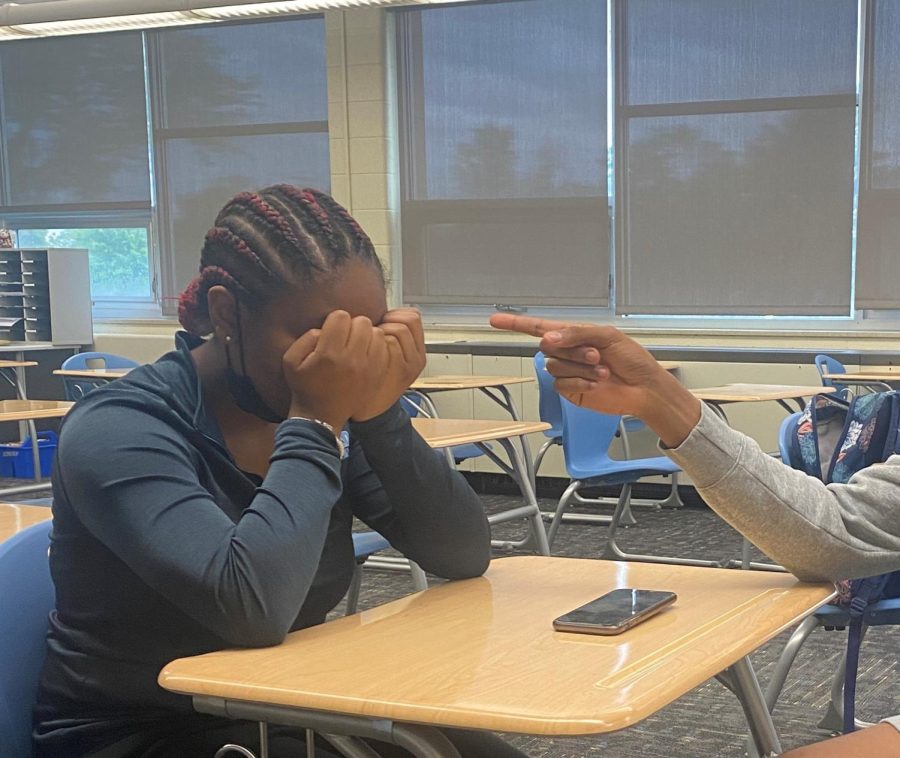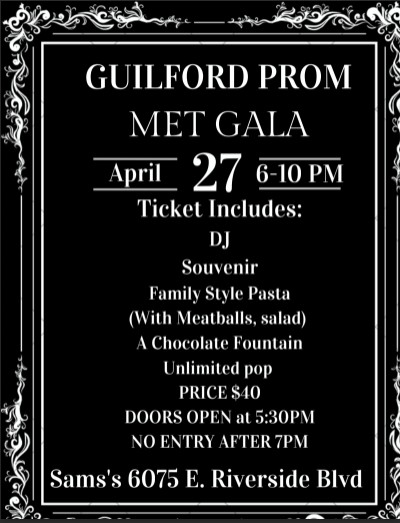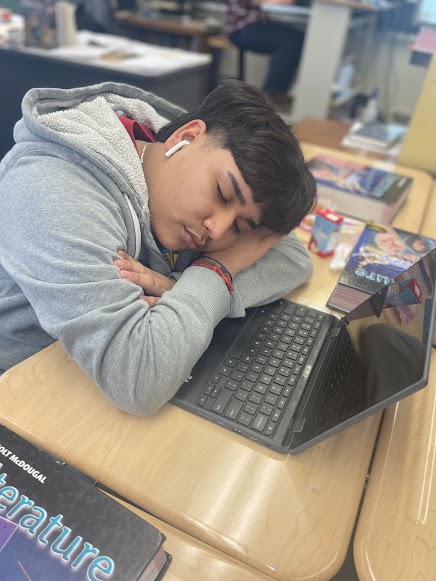Abusive teen relationships: Watch for the signs
A relationship should be based on respect, not manipulation and blame. (Photo Illustration)
(Note: Two students were interviewed for this story, one male and one female. Their names are withheld for anonymity.)
In the United states, about one in every three youths, including girls and boys, is a victim of partner abuse. (www.familydoctor.org/teen-abusive-relationship/) Young women, beginning at the age of sixteen, have the highest rate of partner violence and many teens do not report it because they are embarrassed or afraid to confess they are in an abusive relationship because abuse can appear to be love, therefore teens may not recognize they are being abused.
“I have at least three friends who have been in an abusive relationship,” said a sophomore female. “At the time when I was still with my abusive ex, I thought about seeking help because I was hurt mentally, but I did not seek help because I loved him. It was hard to believe he was purposely trying to hurt me. I did not want to tell anyone either because I was afraid of him getting into trouble. I didn’t know I was getting emotionally abused until after I left the relationship and my friends told me.”
Abuse is when someone is treated with contempt, violence, cruelty, hurt or force. An abusive relationship occurs when a person mistreats their partner in any of these ways. Abuse in a relationship can take the from of physical, sexual, or emotional abuse, or any combination of these. An abusive relationship usually starts with small red flags and from there the red flags only continue to get bigger.
“An abusive relationship starts off with the small things such as lying and hiding things your partner doesn’t want you to see,” said Ms. Kristen Roberts, Health Academy Counselor. “Early in relationships, love bombing is quite common, which can be a red flag as well. Your partner can be very clingy and will give you excessive compliments, mirror all your interests, give you constant gifts, try to spend too much time together too soon and ask you to spend time with them rather than friends. They could also blame all their worries and issues on other people when they get mad.”
During partnerships, up to seventy six percent of youth suffer emotional and physical abuse. Emotional abuse occurs when a person’s emotions are influenced by a habit of abusive and bullying words or actions, in general. It is oppressive and serves as a means of punishing a person through humiliation and intimidation. This type of abuse does not necessitate physical touch to produce harm, but it does lower a person’s self-esteem and self-worth. Emotional abuse can manifest itself in a variety of ways, leaving a victim feeling worthless, hurt and anxious. As a result of the pain, a person who has been subjected to this form of abuse may develop suicidal thoughts and perhaps attempt sucide.
“In my past relationship, my ex would never admit his own mistakes and always found a way to blame it on me, even when he cheated,” said the sophomore female. “I was always the one apologizing for everything even when it wasn’t my fault. Every time he started an argument I cried myself to sleep wondering why I was not good enough. I fell into a deep depression where I stopped eating and gained a lot of trust issues. I started to lose hair and lost twenty pounds in the matter of only a few weeks. At the time, I completely lost all confidence in myself, and the depression was not helping, so I was wearing long sleeves to cover the injuries I did to myself. When my mom would ask me how I got injured I just used ‘getting hurt in the gym’ as an excuse for what I did to myself.”
Emotional abuse can often be hard to recognize. For most of us, it is hard to accept that someone who claims they love us would hurt us. Many teens have unrealistic perceptions about what love means due to their own parents’ relationships. They may think they have to fight to maintain an unhealthy relationship, rather than give up. Many children who witnessed violence between parents are at a greater risk of being in violent future relationships or being violent themselves in future relationships. The way their parents express love to one another will be modeled and emulated by their children.
“Growing up, I never got the right parental guidance in what a healthy relationship looks like,” said the sophomore female. “I only saw the abusive side of it and thought that’s what love was as a child. That affected me only getting into abusive relationships without realizing it was abuse.”
It can be tough to spot a potential abuser. According to the online article “Domestic Abuse: Recognizing the potential abuser” by Michele Bloomquist, abusers strive to force the relationship to end quickly. They frequently become emotionally connected fast and speed through the getting to know you portion of the relationship so you may learn a little about their background and family. Abusers frequently portray rushed conduct as romantic by saying things like “I can’t live without you,” or “I’ve never felt this way with anyone else before.” If you try to slow things down with them, they will make you feel like you are being overly reactive, and if you leave, they may make suicidal threats. Abusers will attempt to isolate you. They seek to deplete your support system. To accomplish this, they might try and start conflict with your friends and family to get them to avoid both of you. (https://www.webmd.com)
“My ex would be fine one day and toxic the next,” said a sophomore male. “She would make me feel loved and cared for then all of a sudden it was like she was a completely different person the next day. When I would make plans to hang out with my friends and she didn’t like it she would try and manipulate me into feeling bad for her because she would start to tell me how lonely she’s going to be by herself. She would guilt trip me into staying with her rather than hanging out with my friends which caused me to get really distant from my friends because I never saw them anymore.”
Unfortunately, teens who suffer from emotional abuse from their relationship are at a higher risk for lower academic achievement. A student struggling with their mental health can lead to a variety of problems in their education both present and in the future. They may not feel like themselves or be disoriented, making it difficult to concentrate and a desire to avoid completing school work, which can result in failing grades. Teens who have been emotionally abused tend to distance themselves from others. Some mentally ill teenagers lack the bravery to undertake ordinary activities such as getting out of bed in the morning or getting dressed, resulting in frequent absences from school. This results in poor grades as well.
“I couldn’t really do anything because I got so drained,” said the sophomore female. “There were days where I physically could not get myself out of bed. On days where I went to school I was just really quiet and kept to myself. It was a struggle for me to try and focus in class.The depression was part of me and I was upset that I couldn’t bring myself up to do anything. When me and my ex would get into arguments I usually missed three days a week of school and from there my grades started to drop and I was close to failing some of my classes.”
Teens who suffer from dating abuse are more likely to be depressed, have eating disorders, perform poorly in school, have poor relationships and a low self esteem. Not only can an abusive relationship make them feel like they are not worthy of love, but they also are left with trust issues making it a possibility for them to sabotage their future healthy relationships due to the abuse they suffered from.
“I lost a lot of sleep and lost a lot of friendships,” said the sophomore male. “After the break up was when the depression hit. I stopped working out because I just couldn’t go to the gym knowing I have this thing on my mind I can’t take away. When I was still in the relationship, my ex would go out and do things that she knew would make me upset and after that I didn’t trust her as much as I used to. It was draining for me to be in a relationship with someone who constantly overstepped my boundaries.”
In order to preserve good mental health, teens must understand what an abusive relationship is and how to spot one. Teens who learn how to form and maintain good romantic relationships grow up to be well-functioning adults with healthy adult relationships. Healthy dating during teenage years is an essential part of developing social skills, learning about other people, and emotionally maturing.
“Certain things like mutual trust and respect is what makes a healthy long term relationship,” said Ms. Roberts. “I think the key to a healthy relationship is curiosity. You and your partner want to be interested in each other’s goals, thoughts and daily life. It’s important to make each other feel cared about to one another.”
Sources:
















